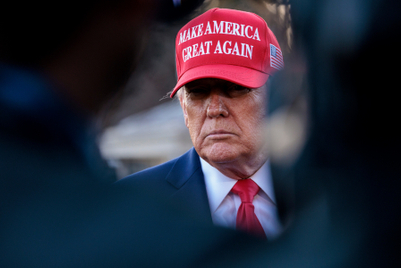
Across China, iQiyi’s hit Chinese crime drama The Knockout has become the most talked about show online in recent weeks, boasting a 9/10 score on domestic review site Douban. The series’ middle-aged male stars — Zhang Yi and Zhang Songwen — have also skyrocketed in popularity.
Unlike usual C-dramas that cast handsome young men, also known as “little fresh meat,” to gain traffic, the two main leads are both men in their mid-40s. Despite their age, wrinkles, and average looking, the actors have been making waves online since the show’s release.
Notably, 45-year-old Zhang Yi, who plays the front-line policeman named An Xin in the series, is now trending as an “ideal husband” on Weibo. Meanwhile, domestic social media platforms are flooded with GIFs of Gao Qiqiang, played by 46-year-old actor Zhang Songwen, the Chinese mafia boss in the fictional drama.

Across China, iQiyi’s hit Chinese crime drama The Knockout 狂飙 has become the most talked about show online in recent weeks. Actor Zhang Songwen playing Gao Qiqiang in the series. Image: Weibo
The positive reception of these middle-aged stars indicates the rise of new marketing strategies to reach local consumers looking for something different than picture perfect idols. Here, Jing Daily looks at how brands can leverage the resurgence of older male celebrities.
Middle-aged male stars are a safer option compared to young idols
EqualOcean reported that China’s idol economy was worth about $724 billion (RMB 4.94 trillion) in 2021 and will grow to $940 billion (RMB 6.42 trillion) by 2023. However, in recent years, China’s entertainment industry has been smeared by idol scandals. Luxury brands bundled with wrongdoing “little fresh meat” had to rush to terminate their endorsement contracts to avoid negative backlash, as was the case with Louis Vuitton and rapper Kris Wu.
Given the costly uncertainty of “traffic stars” — who heavily rely on the fan economy to push the sales of the products they promote — brands are testing a new cast of ambassadors. On February 9, Shiseido officially announced 48-year-old film star Huang Bo as its high-end line’s ambassador. This was beyond the expectations of many people.
On February 9, Shiseido officially announced 48-year-old film star Huang Bo as its high-end line’s ambassador. Image: Weibo
Mid-40s personalities — known also as “uncle stars” — offer a safer option for brands and enjoy wider market recognition among young and old consumers. Chen Liang, the managing partner at marketing agency éClair, believes the rise of middle-aged celebrities is also encouraged by the government that wishes to “recognize quality actors over traffic idols.” Hence, this is a belt-and-braces approach.
How can brands collaborate with middle-aged stars?
Middle-aged stars resonate well with consumer generations such as millennials. Although many beauty and luxury players are trying to target Gen Z, Amber Wu, account director at digital creative agency Qumin, shares that “the consumption power of millennials can’t be ignored.” In China, over 42 percent of local high-net-worth individuals are under 40.
Additionally, this cohort of mature celebrities pairs well with the nostalgia marketing phenomenon in China. In an era of dramas and advertising filled with fresh-faced idols, businesses leveraging uncle stars can stand out from the fierce competition and create social buzz. Huang Bo’s endorsement of Shiseido attracted 1.2 million views to the beauty brand’s campaign.
Additionally, they shouldn’t be seen just as opportunities for social stunts. In 2017, the all-natural beauty brand Fresh announced actor Chen Kun as its China ambassador. The campaign highlighted attributes like patience, poise, and grace, strengthening the affinity between the star and the product.

In 2017, the all-natural beauty brand Fresh announced actor Chen Kun as its China ambassador. Image: Weibo
Middle-aged stars boast decades-long careers, outstanding cinematographic works, and broad recognition with audiences across ages. Thanks to their high reputation, they are an excellent fit for legacy houses that continue to attract consumers through their centenary history and craftsmanship.
“As luxury brands are returning to their classic codes, mid-40s personalities seem to be a more appropriate and safer choice for them. So far, most of these collaborations are short-term and events or products oriented. This is because brands are getting more cautious regarding ambassadors or long-term collaborations,” says Liang from éClair.
Greater negotiating power and other factors brands need to be aware of
Partnerships between middle-aged stars and companies might be different from traffic idols. These film industry veterans hold a high standard for collaborations. Liang tells Jing Daily that it is a mutual choosing process regarding established names: “The negotiation may last longer.”
Additionally, these stars typically only have Weibo but not Xiaohongshu or Douyin. “Their influence needs to be augmented by brands’ extra efforts,” adds Liang.
As such, brands should consider their affinity with the relevant personality. Although Shiseido succeeded in grabbing the attention of netizens by joining hands with Huang Bo, negative reactions were spotted in the comments section. The first most liked comment from @3分甜百香果双响炮, asked: “There are no 40 or 50+ female stars to choose?”
That said, when it comes to skincare, brands should not apply the same “fresh little meat” formula to attract fans to purchase products endorsed by older stars. Instead, they can focus on attributes shared by both the brand and the celebrity to create a campaign that resonates with consumers. For instance, middle-aged male stars can be a great fit for male beauty labels that focus on urban skincare and graceful aging.
Overall, experts cite that a one-size-fits-all marketing tactic will not work. Brands must beware of the differences between collaborating with young idols and middle-aged stars, as they influence different demographics.






.jpg&h=334&w=500&q=100&v=20250320&c=1)
.jpg&h=334&w=500&q=100&v=20250320&c=1)

.jpg&h=334&w=500&q=100&v=20250320&c=1)

.jpg&h=334&w=500&q=100&v=20250320&c=1)
.jpg&h=334&w=500&q=100&v=20250320&c=1)




